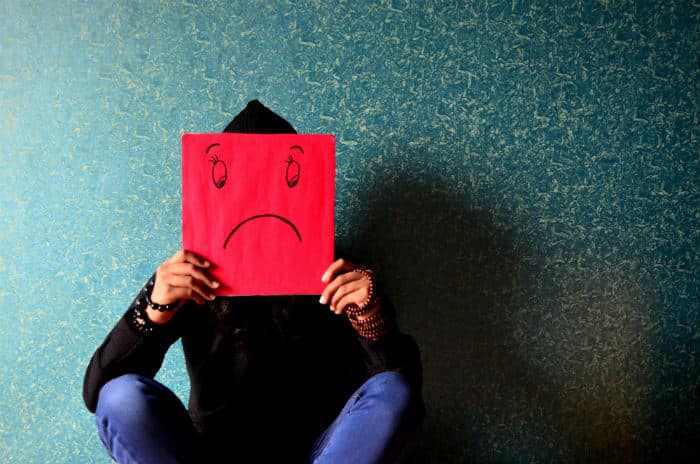Bipolar disorder is one of the most highly investigated neurological disorders, affecting nearly 4.5 percent of adults in the United States.
Sadly, less than 40 percent of people with bipolar disorder receive the treatment needed to help them live their lives to the fullest.
Bipolar Disorder And Its History
Bipolar disorder has been a topic in the medical field from as early as the 1st century in Greece.
As time has passed, more was brought to light about the topic of bipolar disorder and what could be done to help those who had it.
Bipolar disorder went from a topic that was a bit misunderstood, to a subject that is understood better. The new research that has been put into bipolar disorder helps us to understand what bipolar disorder is and how it can be treated.
What Is Bipolar Disorder?
Bipolar Disorder is a mental health condition that causes extreme mood swings which span from emotional highs and lows.
Those with bipolar disorder will experience large amounts of energy, euphoria, or irritability.
When they experience emotional lows, they may feel sad or hopeless and lose interest in activities that they once enjoyed.
These mood swings have the potential to affect activity, energy, judgment, sleep, behavior, and the ability to think clearly.
Symptoms of bipolar disorder can come in two forms: mania and hypomania and depression.
Common symptoms of mania and hypomania are:
- Skittish
- Increased activity, energy, or agitation
- Euphoria
- Insomnia
- Racing thoughts
- Short attention span
- Poor decision-making skills
Common symptoms of depression are:
- Depressed mood–feeling sad, empty, hopeless or tearful
- Loss of interest in or feeling no pleasure in activities that were once enjoyable
- Insomnia or sleeping too much
- Restlessness or slowed behavior
- Loss of energy
Bipolar disorder usually begins to manifest itself in late adolescence or young adulthood. Rarely, it can happen earlier in childhood.
The interesting thing about bipolar disorder is that there is no one thing that you can pinpoint that leads to an individual having bipolar disorder.
Although not one specific reason has been found for someone developing bipolar disorder, it is thought to be contributed to genes, stress, and brain changes, all of which play a role in the development of bipolar disorder.
Bipolar Disorder Treatment in Utah
Those suffering from bipolar disorder may feel discouraged and not know where to turn for help. A positive side is that treatment can be given to help regulate the mood swings that accompany the disorder.
Treatment can come in many forms depending on the severity of the episodes that they are experiencing.
The most common treatments used are:
- Therapy
- Medication
- Supportive care
- Specialists
Why is New Roads Behavioral Health The Best For Those With Bipolar Disorder?
Bipolar Disorder treatment in Utah can be found at New Roads Behavioral Health.
New Roads has programs that are specifically designed to help those suffering from bipolar disorder.
Among these treatment programs at New Road is the New Roads to Healing program (NoRTH).
This program is built to support, encourage, and inspire young adults whose development has been impacted by severe mental health conditions.
The goal of the program is to offer bipolar disorder treatment in order to help people achieve independence.
NORTH allows those with bipolar disorder to receive treatment in Utah with a treatment plan customized to them.
They are taught how to monitor their own mental state, how to manage prescribed medications, and how to set and reach specific goals.
One thing that sets New Roads Behavioral Health’s treatment for bipolar disorder apart from the other bipolar disorder treatments in Utah is the use of Dialectical Behavioral Therapy (DBT).
This treatment process is used for every client due to the broad scope of its treatment potential.
There Are Five Modes of DBT
Each of the modes incorporates a support team to help promote healthy behaviors and reinforce the skills taught in therapy.
- Individual Therapy
- Skills Training
- Ancillary Treatments
- Telephone Consultation
- Consultation Team
There are four different aspects of the DBT treatment that are implemented in order to better treat those with bipolar disorder.
#1 Mindfulness & Meditation
Clients learn to focus non-judgmentally on the world around them, bringing their rational and emotional minds into balance.
#2 Emotional Regulation
DBT offers skills for identifying, understanding, and managing these emotions, no matter how overwhelming they may seem.
#3 Distress Tolerance
Clients learn how to accept and tolerate distress in an observant, non-judgemental fashion– and to make more appropriate, less destructive decisions.
#4 Interpersonal Effectiveness
These relationship skills focus on helping individuals interact positively and productively with others. We teach our clients how to meet their needs, how to handle conflict, and how to keep their interpersonal relationships strong without resorting to manipulation or other destructive behaviors.
These four pillars of the DBT make it so that the client can be confident, independent, and accepting of the support of loved ones.
They are given the skills they need in order to maintain a healthy lifestyle.
The treatment that New Roads offers to their patients shows that bipolar disorder treatment is available in Utah and is a great resource to help those with bipolar disorder in order to live a fulfilling and healthy lifestyle.

